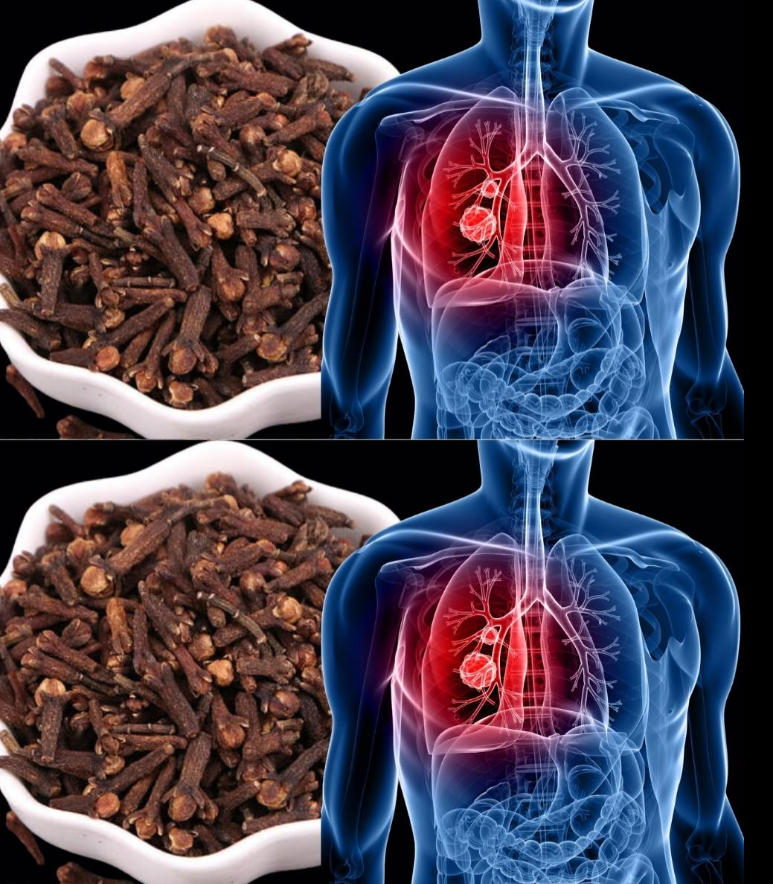To make a simple clove-based remedy for respiratory support, you’ll need:
-
4–6 whole cloves
-
1 cup of hot water
-
1 tsp honey (optional, for taste and added soothing effect)
-
1 small piece of ginger (optional, for additional anti-inflammatory benefits)
-
1 pinch of black pepper (optional, to enhance absorption)
Preparation:
-
Boil Water: Heat 1 cup of water until it reaches a rolling boil.
-
Add Cloves: Drop the cloves (and optional ginger or black pepper) into the water.
-
Steep: Cover and let steep for 10–15 minutes.
-
Strain and Sweeten: Strain the liquid into a cup and add honey if desired.
-
Sip Slowly: Drink warm, ideally twice daily, especially during cold or allergy seasons.
Serving and Storage Tips:
-
Best Served Warm: The soothing effects are most potent when consumed warm.
-
Storage: Store unused clove tea in the refrigerator for up to 24 hours. Reheat before drinking.
-
Frequency: Drink 1–2 times a day during periods of respiratory distress or infection.
-
Add Variety: Combine with herbal teas like thyme or chamomile for added benefits and flavor.
Variants:
-
Clove Steam Inhalation: Boil a few cloves in water and inhale the steam with a towel over your head for nasal and chest congestion relief.
-
Clove Honey Paste: Mix powdered cloves with honey and take a small spoonful to soothe sore throats and persistent coughing.
-
Clove Oil Rub: Mix a drop or two of clove essential oil with carrier oil (like coconut oil) and rub on chest for a warming, clearing effect.
-
Spiced Clove Decoction: Add cinnamon, turmeric, or fennel seeds to the clove tea for a more comprehensive respiratory tonic.
FAQ:
Q: Why are cloves effective for respiratory issues?
A: Cloves contain eugenol, a natural compound with anti-inflammatory, antiviral, and expectorant properties that help reduce congestion and fight infections.
Q: Can children use this remedy?
A: Yes, but in moderation. Use fewer cloves and consult a pediatrician before giving it to very young children.
Q: Is clove tea safe for daily use?
A: In moderate amounts, yes. However, long-term excessive use may irritate the stomach or interact with medications.
Q: Can I use ground cloves instead of whole?
A: Yes, but start with a small pinch, as ground cloves are more concentrated and intense in flavor.
Q: Are there any side effects to be aware of?
A: Most people tolerate cloves well, but those with ulcers, bleeding disorders, or on blood thinners should consult a healthcare provider before use.
